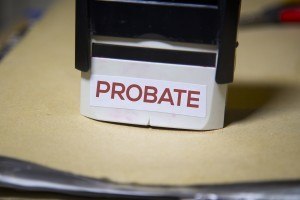
Though most people are aware of the need to have a will in advance of their death, there are many who neglect to do so, leaving their loved ones unsure as to what their wishes were regarding their estate. Even the estates of those individuals who have planned carefully and who leave behind comprehensive plans are required to go through a legal process known as probate. In the state of New Jersey, this court-supervised process is relatively straightforward and simple, though it can be complicated when only a copy of the decedent’s will is available – and can be even more complicated when there is no will to begin with. If you are a surviving spouse of close family member or friend of a person who has died and you need to begin the probate process, you may be unsure as to where to start or what you need to know. The attorneys at Rothamel Bratton are here to help – here are some important answers from a probate attorney.
- The state of New Jersey has made efforts to make the probate process as uncomplicated as possible. The best case scenario is one in which the decedent leaves an original will that has been signed, notarized, and witnessed. When this is the case, those left behind need only provide a few documents and pay a processing fee.
- In instances where the original of the will is not located but there are copies of the signed and witnessed will available, the process is still straightforward but does require going to court in order to have it admitted. An executor will be appointed and the fees are generally much higher than is true when an original is available.
- Where no will has been written or can be located, the probate process becomes much more complex, and will require much more time and expense. The court may need to assign an administrator, and will issue Letters of Administration. These documents are required in order to allow the deceased’s assets to be distributed or sold.
- Where there is no will but the sum total of the value of the assets left behind is $20,000 or less, the estate may be eligible for the simplified probate process. This is true where the surviving spouse or partner is entitled to all of the proceeds of the estate. When the estate is worth $10,000 or less and there is no surviving spouse or partner, a single heir can get written consent from other heirs and file an affidavit to receive all of the assets.
The entire probate process generally takes less than a year in the state of New Jersey, depending on if tax returns need to be filed, but if you want to ensure that the process goes smoothly, you are advised to seek representation from a probate attorney. For answers to specific probate questions or to set up an appointment to discuss your particular situation, contact the law offices of Rothamel Bratton today.
